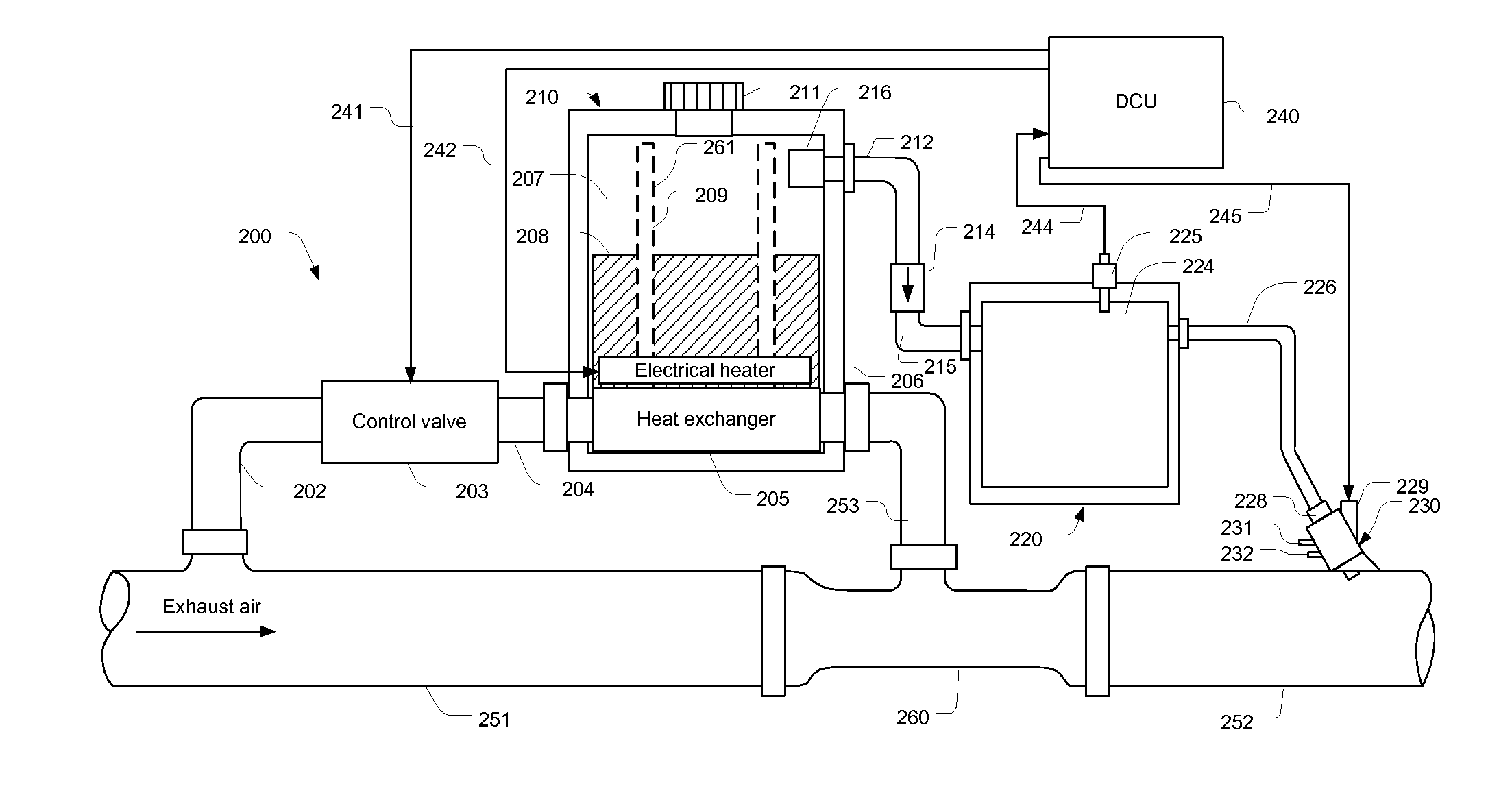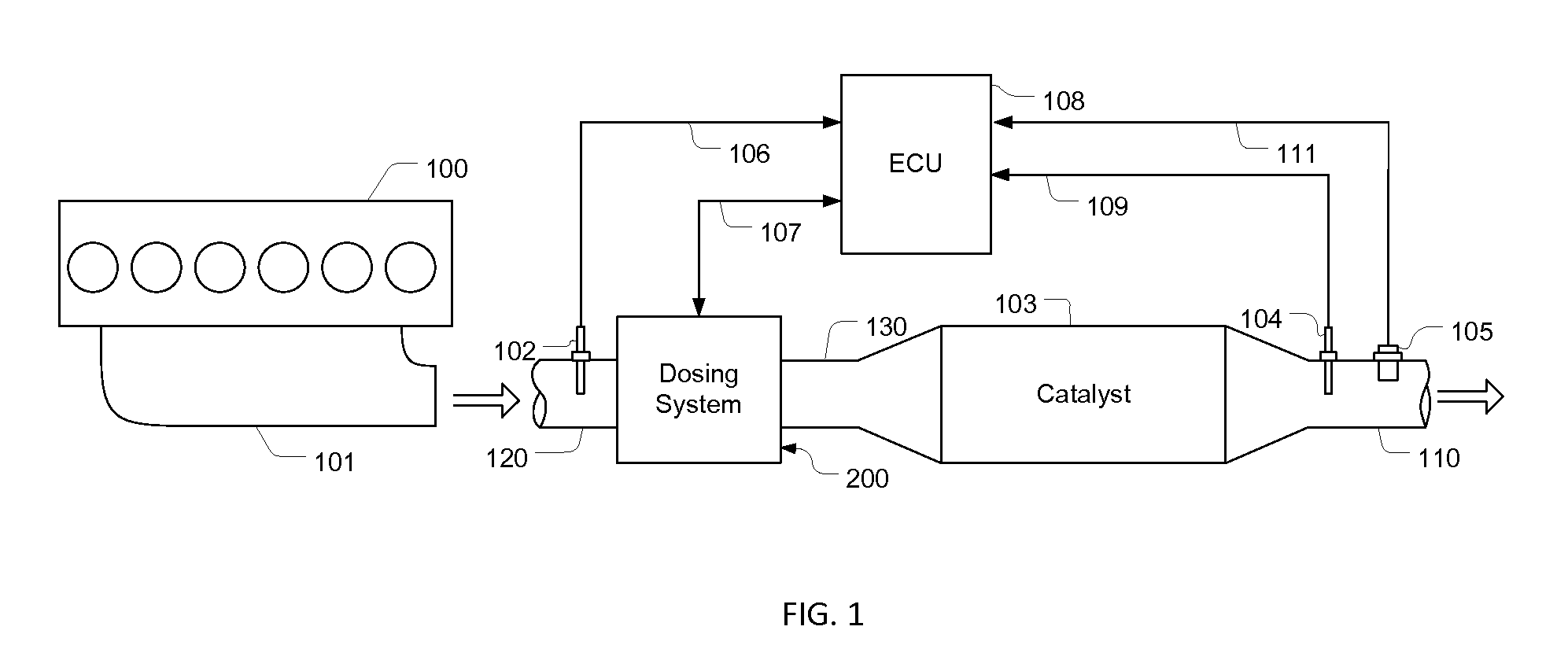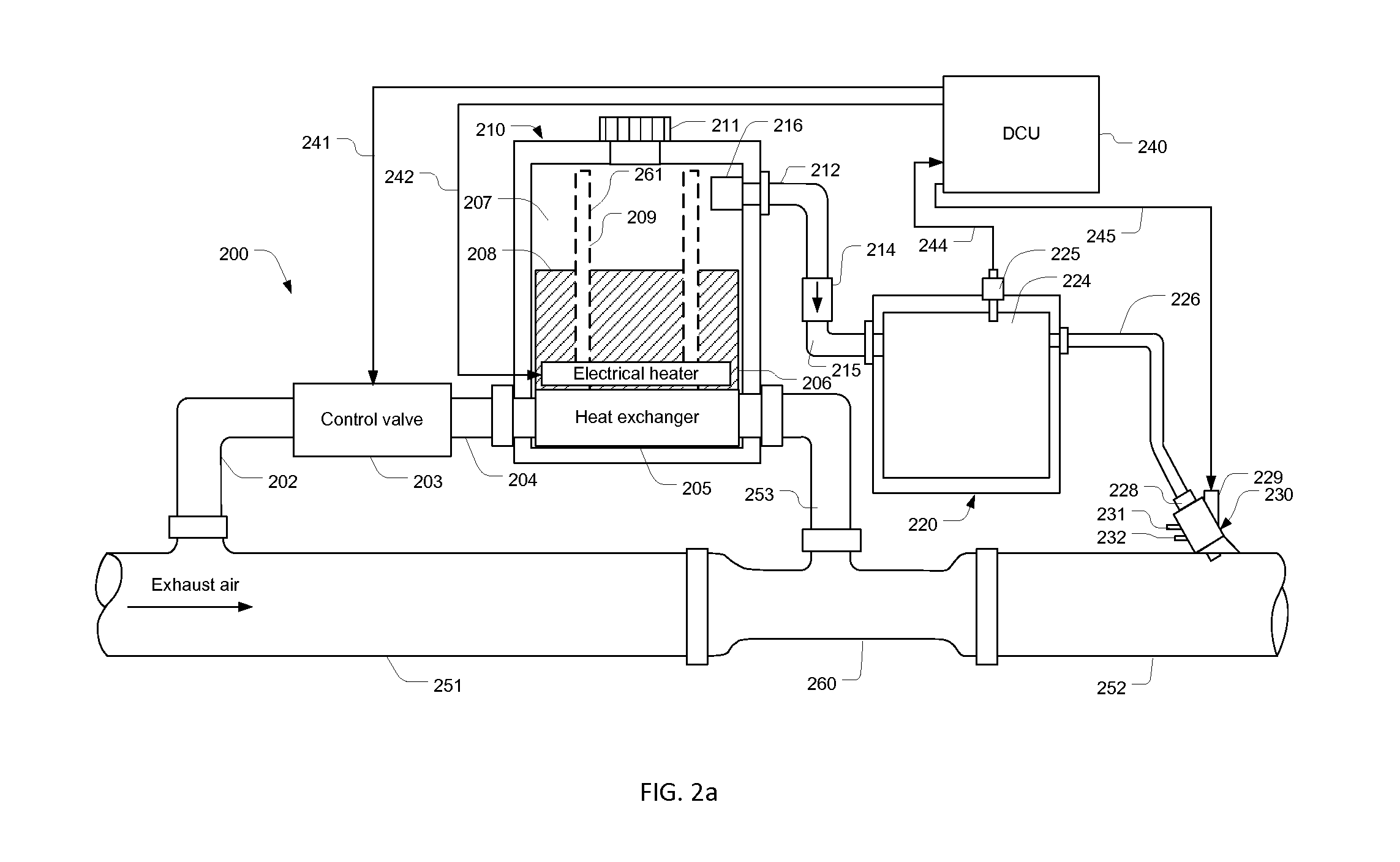Ammonia generating and delivery apparatus
a technology of ammonia generating and delivery apparatus, which is applied in the direction of machines/engines, process and machine control, instruments, etc., can solve the problems of high energy consumption, delivery rate control problems, and difficulty in accurately delivering solid reductants as required
- Summary
- Abstract
- Description
- Claims
- Application Information
AI Technical Summary
Benefits of technology
Problems solved by technology
Method used
Image
Examples
Embodiment Construction
[0031]Referring to FIG. 1, in an engine exhaust gas treatment system, an exhaust gas generated by an engine 100 enters a passage 120 through a manifold 101. The passage 120 is fluidly connected to a dosing system 200, which is controlled by an ECU (Engine Control Unit) 108 through signal lines 107. Inside the dosing system 200, reductant is delivered and mixed with the exhaust gas. And through a passage 130, the result mixed air flows into a catalyst 103, where reductant reacts with the NOx in the exhaust gas and reduces it. On the passage 120, a temperature sensor 102 is used to measure the temperature of the exhaust gas upstream from the catalyst 103 and the sensing signals are sent to the ECU 108 via signal lines 106. A temperature sensor 104 installed on a tail pipe 110, which is fluidly connected to the catalyst 103, is used to measure the exhaust gas temperature downstream from the catalyst 103, and the sensing signals are obtained by the ECU 108 through signal lines 109. On t...
PUM
 Login to View More
Login to View More Abstract
Description
Claims
Application Information
 Login to View More
Login to View More - R&D
- Intellectual Property
- Life Sciences
- Materials
- Tech Scout
- Unparalleled Data Quality
- Higher Quality Content
- 60% Fewer Hallucinations
Browse by: Latest US Patents, China's latest patents, Technical Efficacy Thesaurus, Application Domain, Technology Topic, Popular Technical Reports.
© 2025 PatSnap. All rights reserved.Legal|Privacy policy|Modern Slavery Act Transparency Statement|Sitemap|About US| Contact US: help@patsnap.com



